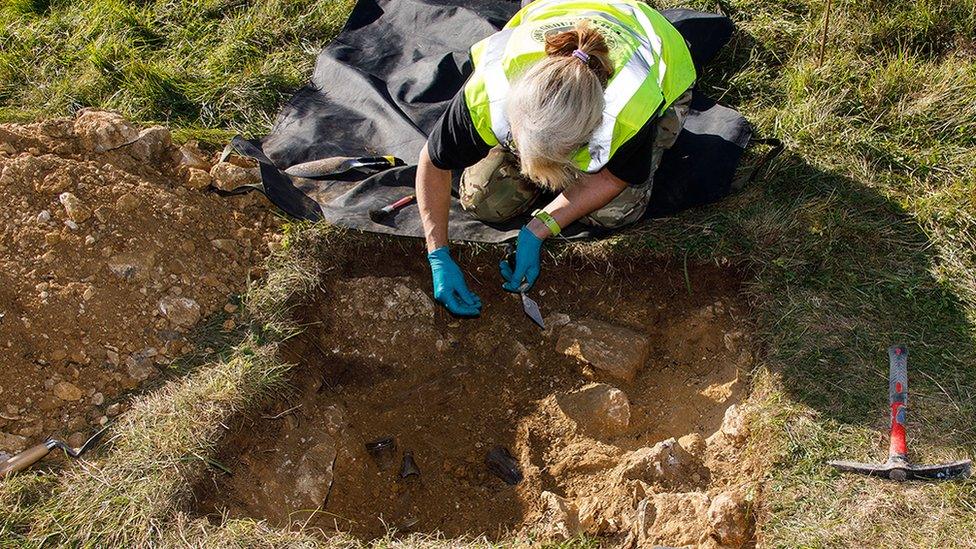Bullets and uniform buttons found during WW2 dig
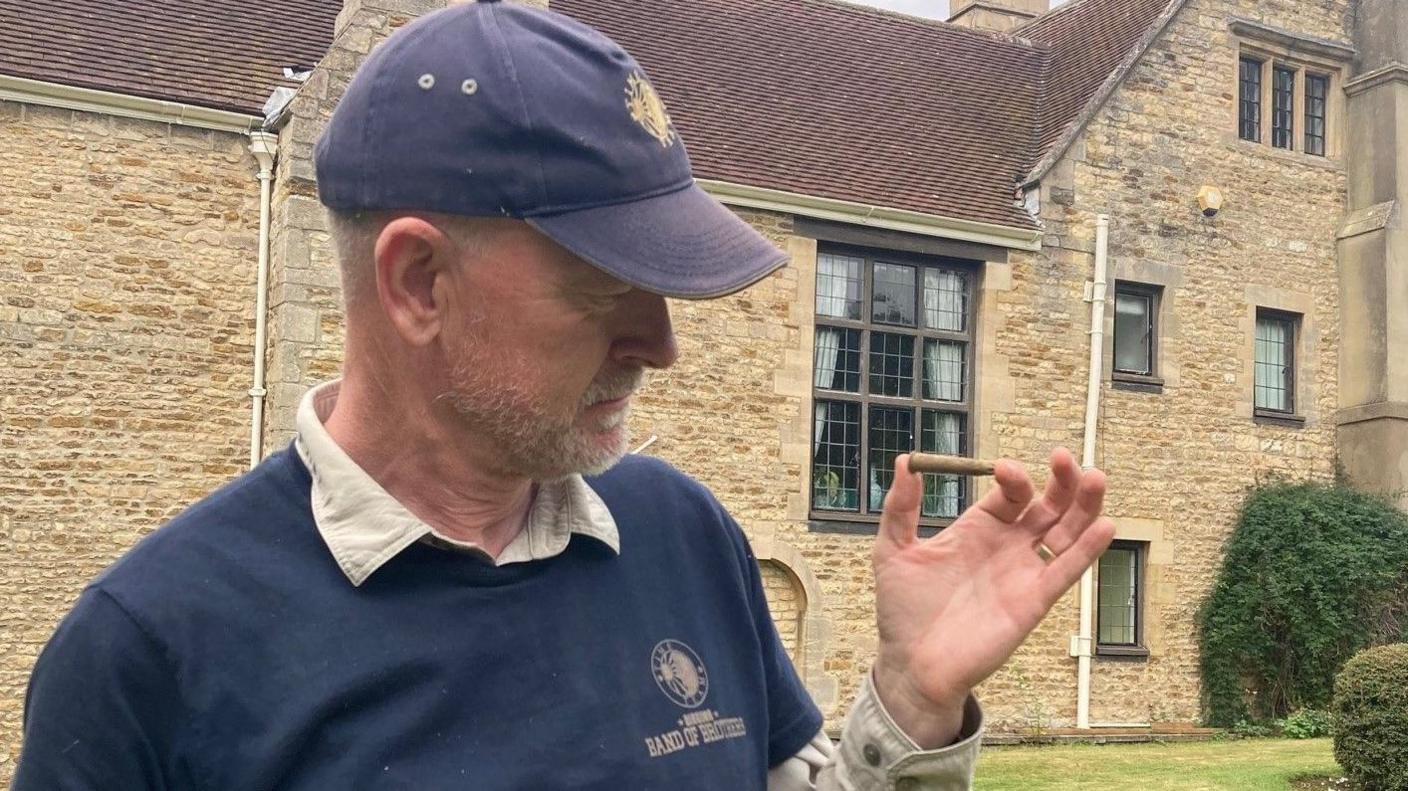
Detectorist David Ulke holding a wartime bullet found at the site
- Published
An archaeological dig at an important World War Two heritage site has uncovered numerous artefacts from the period, including bullets, uniform buttons and engine parts.
The five-day excavation at Fulbeck Manor, near Grantham, hoped to unearth clues about the daily routine of service personnel stationed there before the Battle of Arnhem in 1944.
The dig also revealed the foundations and drains of buildings used by the First Airborne Division of the British Army, who occupied the manor house and grounds.
The Digging Market Garden project is part of South Kesteven Council’s 80th anniversary commemorations of the battle.
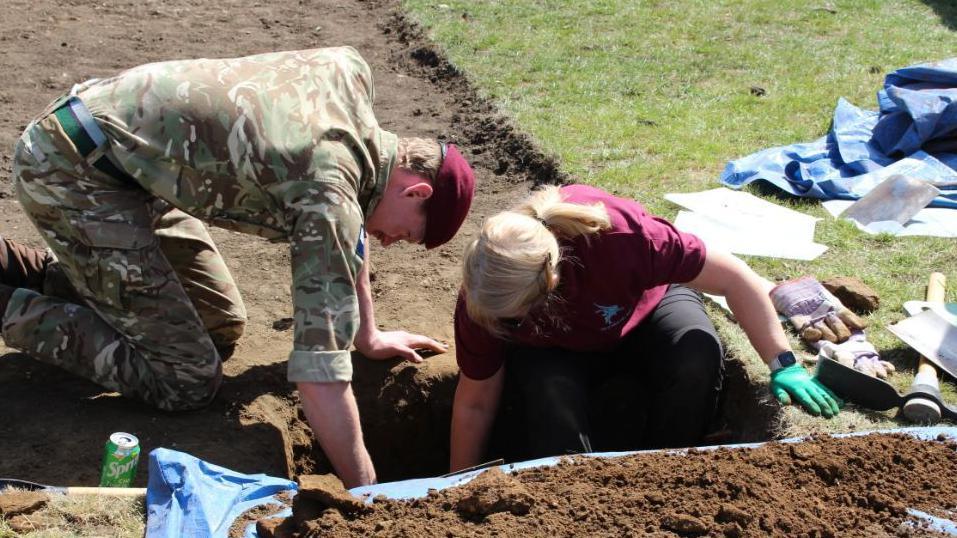
The dig set out to explore the daily routine of servicemen who were stationed at the manor
Fulbeck Manor, the ancestral home of the Fane family, was requisitioned by the armed forces after war broke out in 1939.
Councillor Richard Dixon Warren, armed forces champion for the council, said: "We had no idea what we would find, but it’s been a fascinating voyage of discovery."
The dig was carried out in partnership with the University of Oxford, the University of Lincoln and Wings to the Past.
Injured military personnel also took part in the work through the initiative Operation Nightingale.
Mr Dixon Warren said he hoped the project would act as a springboard to "more archaeological explorations" in future.
"The whole event has been an absolute triumph and one that we were proud to be part of.
"It has proved what an appetite there is for further knowledge about our World War Two and airborne forces heritage."
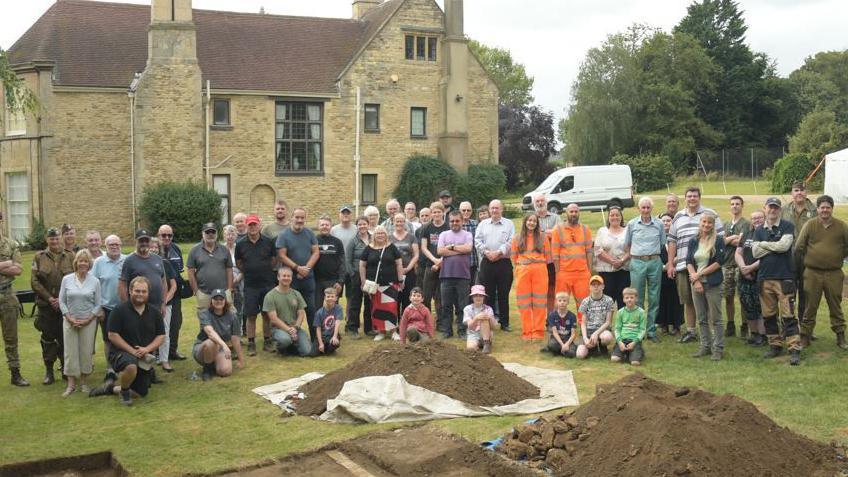
Professor Tim Clack said the dig had demonstrated the potential of working together
Professor Tim Clack from the University of Oxford said the dig had been a success because of the different groups being able to work together.
“We have found an intricate tapestry of World War Two heritage, and one that has enabled us to unearth all sorts of other items of interest to museums," he said.
The project had also led to some "amazing" memories being shared. Local residents visited the site and others contacted the archaeologists after the event to offer their photographs and records, he added.
The Battle of Arnhem took place in the Dutch city and was part of the Allies' Operation Market Garden, a push towards German lines.
Follow BBC Lincolnshire on Facebook, X (formerly Twitter), external, and Instagram. Send your story ideas to eastyorkslincs.news@bbc.co.uk, external
- Published1 August 2024
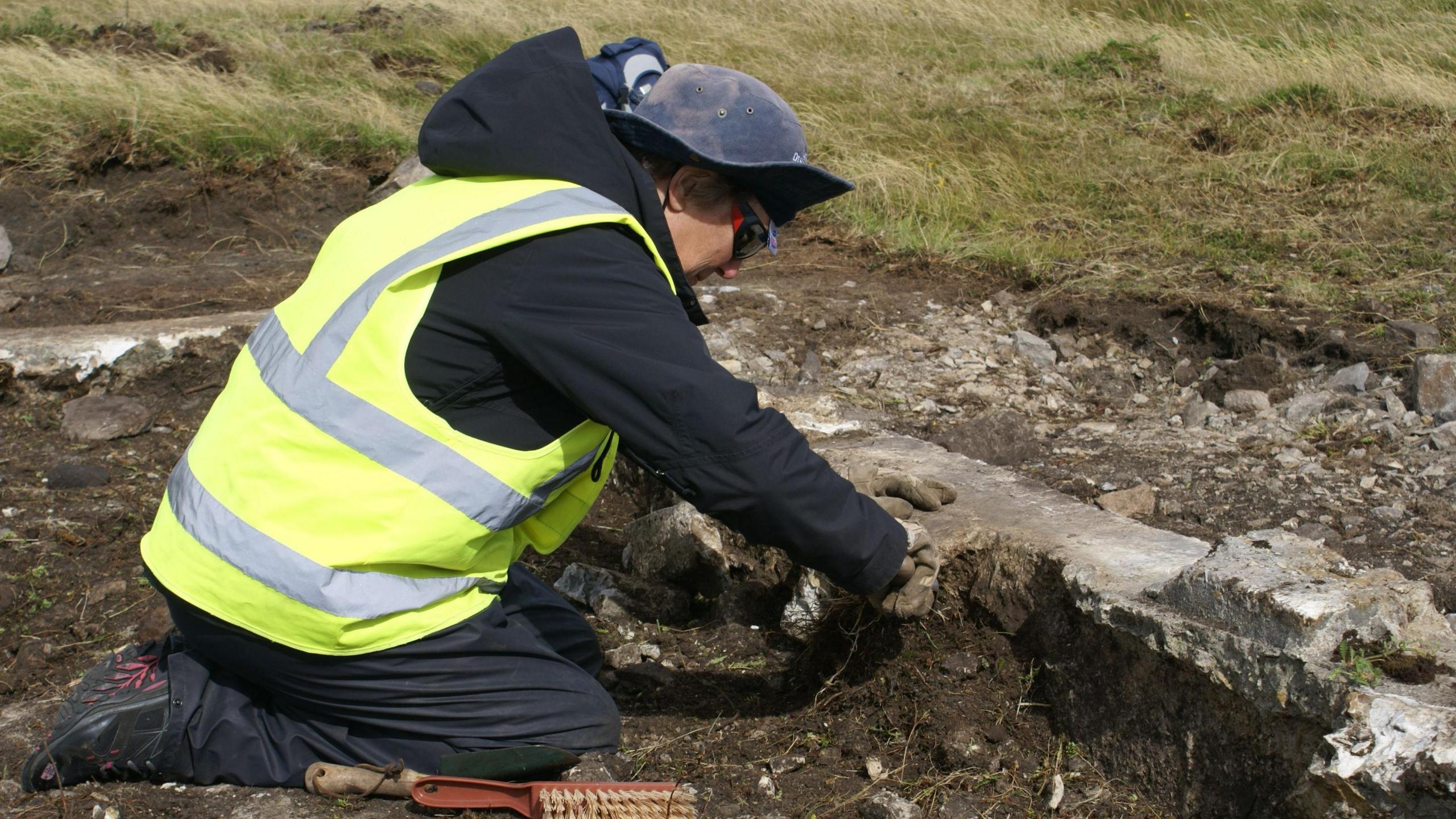
- Published20 May 2024

- Published27 October 2022
